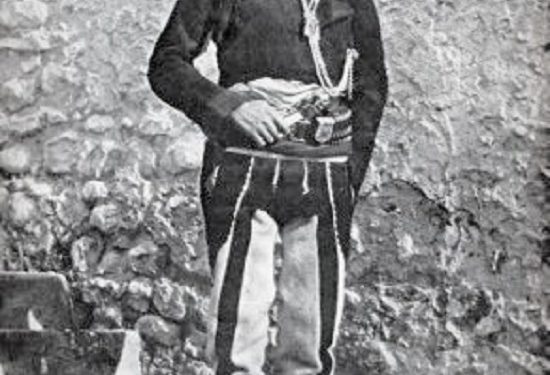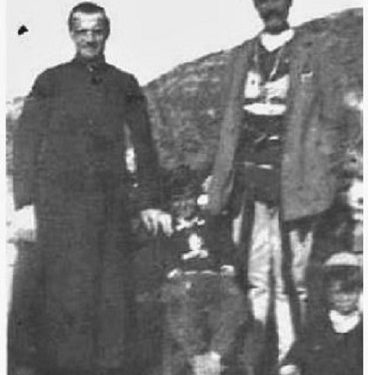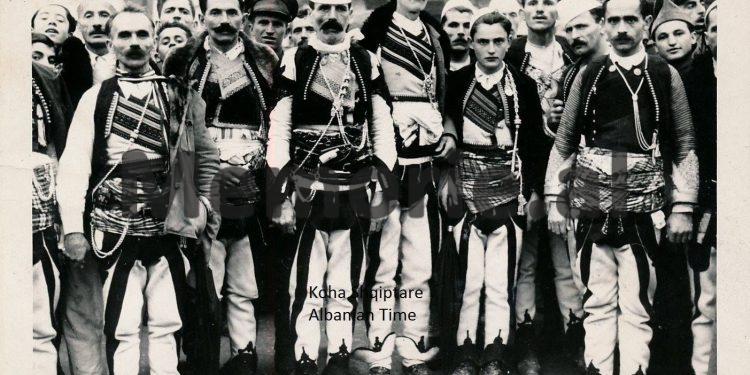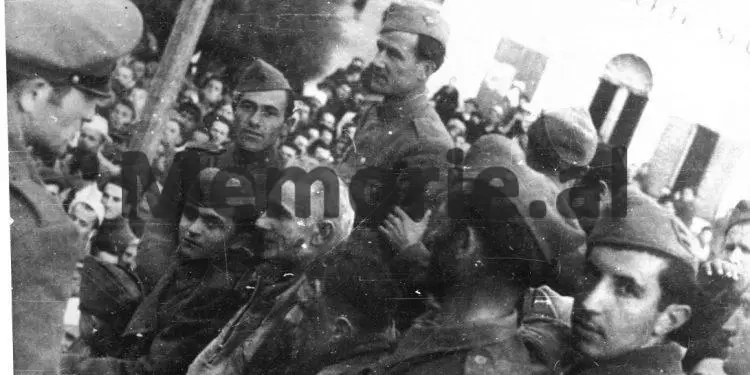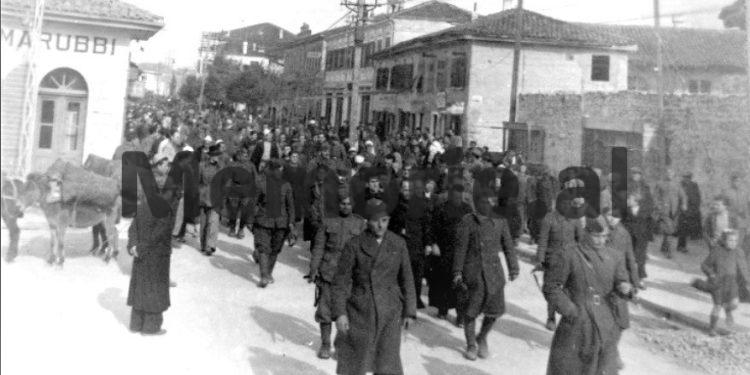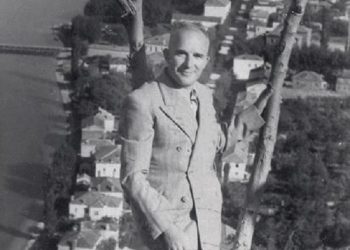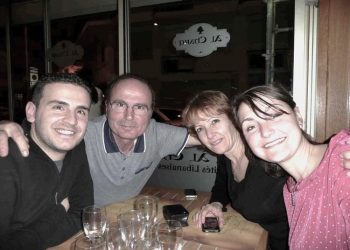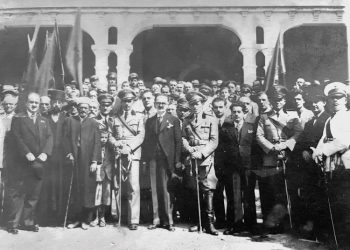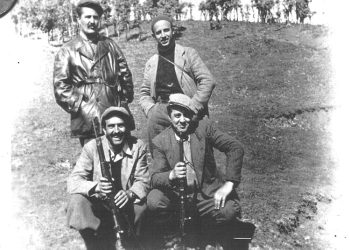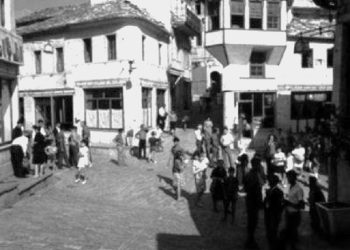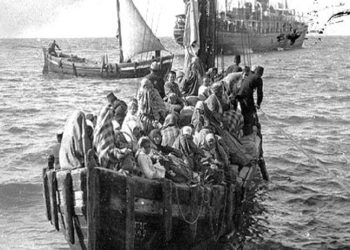Reflections of a Publicist on Prekë Cali and the Post-War Conflict
Memorie.al/ Prekë Cali is not easily understood, because he was not simply a mountaineer, but a tribune of his own kind, who, with a rallying cry, gathered “a man for every house” in the assembly grounds or on the border line. Meanwhile, the leader of Vermosh and the whole of Kelmend is perfectly understandable to those who know the code of the mountains and the archetype of the mountaineer, who had to live his whole life with his rifle raised, so that the Slavic neighbors would not push the border of the homeland in front of his nose, day after day.
He is no different from his predecessors: Oso Kuka, Mic Sokoli, Ali Pasha Gucia, Abdyl Frashëri, Çerçiz Topulli, Haxhi Zeka, Dedë Gjo Luli, Nora of Kelmend, Mehmet Shpendi, Azem and Shotë Galica, Bajram Curri, Prengë Marka Prenga, Gjin Pjetri, Zefi i Vogël, etc. We accept all the others, compose songs for them, give them titles of honor, raise their statues, because they were “unblemished” patriots. But the last of them, Preka, who had done the same thing all his life, defending the ancestral lands, has entered our psyche as a “reactionary”!
The same applies to Muharrem Bajraktari of Lumë and other nationalist figures, who wrote history without ever having their own people as enemies, but the historical predators of the territories. “Reactionaries” is the generalizing name used to describe the opponents of the communist power that emerged from the Second World War. How did the legendary mountains of Gjeto Basho Muji suddenly turn into “reactionaries” for nine consecutive years, starting from the autumn of ’44 until ’53?! This is a key problem in the history of Albania, and without treating it properly, the truth cannot be reached.
Prekë Cali was not the only local leader who did not submit to communism. All regions of Albania had their own leaders, even during the time of the Monarchy, who cooperated with the government for order and peace. The Gjomarkajs, the Kapidans (Chiefs) of Mirdita, were the main authority in their region, but with influence and reputation in the other surrounding highlands. They had around three hundred years of traditional governance, and a wise state could not wipe them out root and branch, let alone a weak state that discarded soldiers graduated from Italian academies and promoted peasants and shepherds in the armed forces.
The 1921 government clashed with the rebellious Kapidan of Mirdita and several other regional chiefs, and due to the fault of one side or the other, or both together, an unprecedented war broke out between the government and a region of the country for six months (!) Even after the Second World War, almost the same scheme was followed; the new government would walk through the old repressive trenches against the people. Unfortunately, the new power would enter the “reactionary” North with a vengeance.
The first sacrilege of the victors would be the burning of the towers (kullat / sarajet) of Markagjoni in Orosh, the seat of a region never subdued. Immediately after this, the government sent a punitive military unit to those mountains, led by an illiterate lieutenant from the southern regions, nicknamed “Lieutenant Baba” (Toger Baba), who became the terror of the Mirdita and Zadrima populations, where, after filling the cup of atrocities, he was executed by the regime itself around ’47.
Thus, the Partisans of ’45 were not welcomed with roses in the North, because the War had ended and no occupier’s foot remained. But the “reactionaries,” the anti-communists, the opponents of the “people’s power,” who were being pursued even into their distant towers, remained. The Pursuit Forces continued to liberate the country from… Albanians!? The departments of the People’s Defense operated everywhere. From whom the people had to be defended after the liberation, only the regime in Tirana knew, at war with everyone, internal and external.
The strange thing is that even today, that historical counter-current is not treated with rigor, but continues to be justified as a supposed strategy to extend the “authority of the state” everywhere (!) The newly created government, which continued to hide the Communist Party behind the Front, could punish the war criminals according to international conventions, but not apply collective punishment to all opponents of the power, centered in Northern Albania, which ignited revolt among the people and filled the mountains with fugitives.
To understand the fatal clash between communists and anti-communists, it is enough to stop at the Postriba uprising of 1946, or the double event of August 1949 in Mirdita, where, as punishment for the murder of the district’s political leader, 14 men were executed and dozens of families were interned in Tepelenë. The question arises: how is it possible that the liberators behaved like that with the people?! Why were they not reasonable and entered into negotiations with the “Prekë Calis” and the “Markagjonis,” who were a genuine customary institution in their mountains? The reason is ideological, class-based.
The communists were inspired by the International and their spiritual brothers in ideals were all those who aspired to the “new world,” regardless of nationality (Russian, Serbian, Montenegrin, Chinese, Cuban) and, first and foremost, the Yugoslavs of Miladin Popović and Dušan Mugoša, the “architects” of the founding of the Albanian Communist Party and the National Liberation Movement. There were 9 years of war in the mountains with the “reaction” and the “bands of saboteurs” and in the cities with the country’s elite, where the “Group of Deputies,” people who had graduated from European universities, such as Selaudin Toto, Shefqet Beja, Sheh Ibrahim Karbunara, Riza Dani, Sulo Klosi, etc., were executed as a criminal gang in 1946-’47.
How is it possible that in ’45, the writer Ndre Zadeja was executed; in ’46, the linguist Nikollë Gazulli; in ’48, Bishop Frano Gjini; in ’51, the ichthyologist Sabiha Kasimati; or that the veteran writer Vinçens Prenushi, the world-renowned scientist Stanislav Zuber, died in prison; or that creative personalities like Ndoc Nikaj, Musine Kokalari, Petro Marko, Mitrush Kuteli, etc., were arrested?
Certainly, idealist communists cannot be blamed for what happened, as they themselves were mown down by the “scythe” of the 1956 Tirana Party Conference and the string of black plenums and political trials until ’89, when, even after the fall of the Berlin Wall, killings at the border continued, again in the name of establishing the “authority of the state.” It is necessary for an analysis of the post-war period to finally begin, so that history can start to breathe, without anyone’s hatred.
It made no sense to disregard the personality of the highland chiefs, men of honor and the Kanun (customary law), who were punished by the “liberators” because they had not taken up arms in the same formation as them. We have the case of Abaz Kupi, Pashk Curri, Mark Doçi, and other non-communist anti-fascists who fought on the front line against the occupier. Self-government had created the type of popular leader who was consulted not only in his province but even by the Great Powers.
But how can one believe this in the face of the nickname “bajraktar” (standard-bearer), with which the Communist Party (later the Party of Labor) stained these national fighters in political speeches, monographs, films, etc. Everything that was not Bolshevik was declared reactionary, and it is no coincidence that the war against the “reactionary” Albanians lasted as long as the two world wars combined. If Prekë Cali had been killed before “the Party came,” he would have been a pure patriot. However, he dared to confront Mehmet Shehu, and this was his fatal “mistake.”
He probably did not know that the commander of the First Brigade had massacred 67 innocent villagers in Myzeqe. Prekë Cali had managed to survive as the “King” of Kelmend, while Albania had a King, and was forbidden to exercise this attribute even before the power of Enver Hoxha was established. There was no reason why the mountain chiefs should not have been allies of a power that would value the historical resistance of the Albanians against the invasions; “without distinction of region, religion, and idea,” including the anti-fascist one, but not by extending the ideological punishment to the Catholic Clergy, the highland tribes, the early families, the regions, etc.
For the first time, Albanians were divided according to the motto of class struggle into; “patriots” and “reactionaries,” a profoundly artificial division. A series of questions would deserve answers through the analysis of what happened after the War. Can one speak of the authority of the state when the targeting of hostile groups, within the regime’s dome, starts with Zef Mala of the Communist Groups and continues even after forty years, with the political suicide of the former repressive Prime Minister?
Is it not coincidental that the post-war anti-communist resistance lasted almost a decade? All Albanians defend anti-fascist values, even the nationalists, who themselves fought against fascism, but whose contribution the National Liberation forces denied, not considering them as liberators too.
Whenever we approach this topic, a well-known nationalist, Ndue Zef Ndoci, comes to mind, who told us in his tower in Spaç after ’90 that he had fought with a weapon in his hand for the liberation of Burrel, just like the partisans, but that as a reward for his anti-fascism in the ’50s, he was forced to flee with his brother to Germany, while other nationalist anti-fascists had filled the prisons of the dictatorship.
Albanians continue to see history in black and white. There is no will to shed light, especially on the early post-war period. Scientific conclusions cannot be reached by focusing on random culminating events. If it weren’t for the story of Prekë Cali’s tower, no one would have remembered his figure.
The Academy of Sciences could lead the re-evaluation study process, but it is in a deep institutional crisis. Politics is certainly out of the question. The transition has shown that such approaches are used by parties for their own electoral interests, turning them into sterile debates. Who then?! Universities, independent academic institutions? Perhaps. Memorie.al




